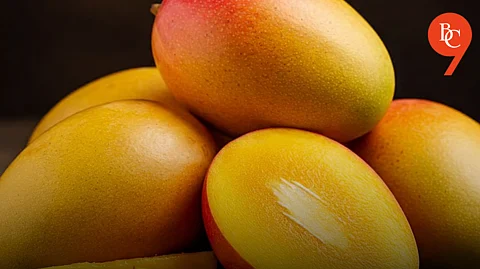

The famed Alphonso mangoes from Ratnagiri, Devgad, and Raigad-regions along the Konkan coast-typically dominate the market from March through May. However, the 2025 season has seen a significant drop in yield due to erratic weather, unseasonal heat, and pest attacks, resulting in an early conclusion to the Hapus season and a sharp rise in prices.
Alphonso production in Konkan is down by up to 65%, with growers citing climate change and heatwaves as the main culprits. Most farmers sold their produce to pulp manufacturers by early May, leaving limited quantities for retail markets. Wholesale prices for ready-to-eat Hapus mangoes in Pune have soared to ₹700–750 per dozen, compared to ₹500–600 previously. The Alphonso season is expected to conclude within the next 8–10 days, with only a trickle of late harvests continuing until June 20 in a few orchards.
As the supply of Konkan Alphonso dwindles, Karnataka’s mangoes have arrived in force, becoming the preferred choice for traders and consumers in Pune and beyond. Karnataka’s mango harvest, especially from regions like Tumkur, Hubli, Mysore, and Ramanagara, is in full swing and will continue until mid-June. Pune’s Market Yard has seen arrivals of 5,000–7,000 crates of Karnataka mangoes daily, including varieties like Karnataka Alphonso, Pairi, Lalbagh, and Badami. Karnataka Alphonso mangoes are retailing at ₹250–300 per dozen-significantly lower than Konkan Hapus-while other varieties like Badami and Lalbagh are available at ₹40–60 per kg. Despite some yield challenges due to erratic flowering and weather, the overall quality of Karnataka mangoes is high, with sufficient supply to meet market demand.
Konkan’s lower yield is a direct result of climate change, with unseasonal heat and failed flowering cycles slashing output. Karnataka experienced a single, well-timed flowering cycle, leading to a concentrated harvest and strong market arrivals from May through mid-June. With Konkan Hapus becoming scarce and expensive, consumers are turning to Karnataka mangoes, which offer similar taste and quality at more affordable prices.
Karnataka mangoes will dominate Pune and Maharashtra markets until at least mid-June, ensuring mango lovers can enjoy fresh fruit well into the summer. With higher supply from Karnataka, prices are expected to remain stable or even decrease slightly, especially for non-Alphonso varieties. Both traders and consumers report that Karnataka mangoes this year are of good size, sweetness, and appearance, making them a worthy alternative to Konkan Hapus.
